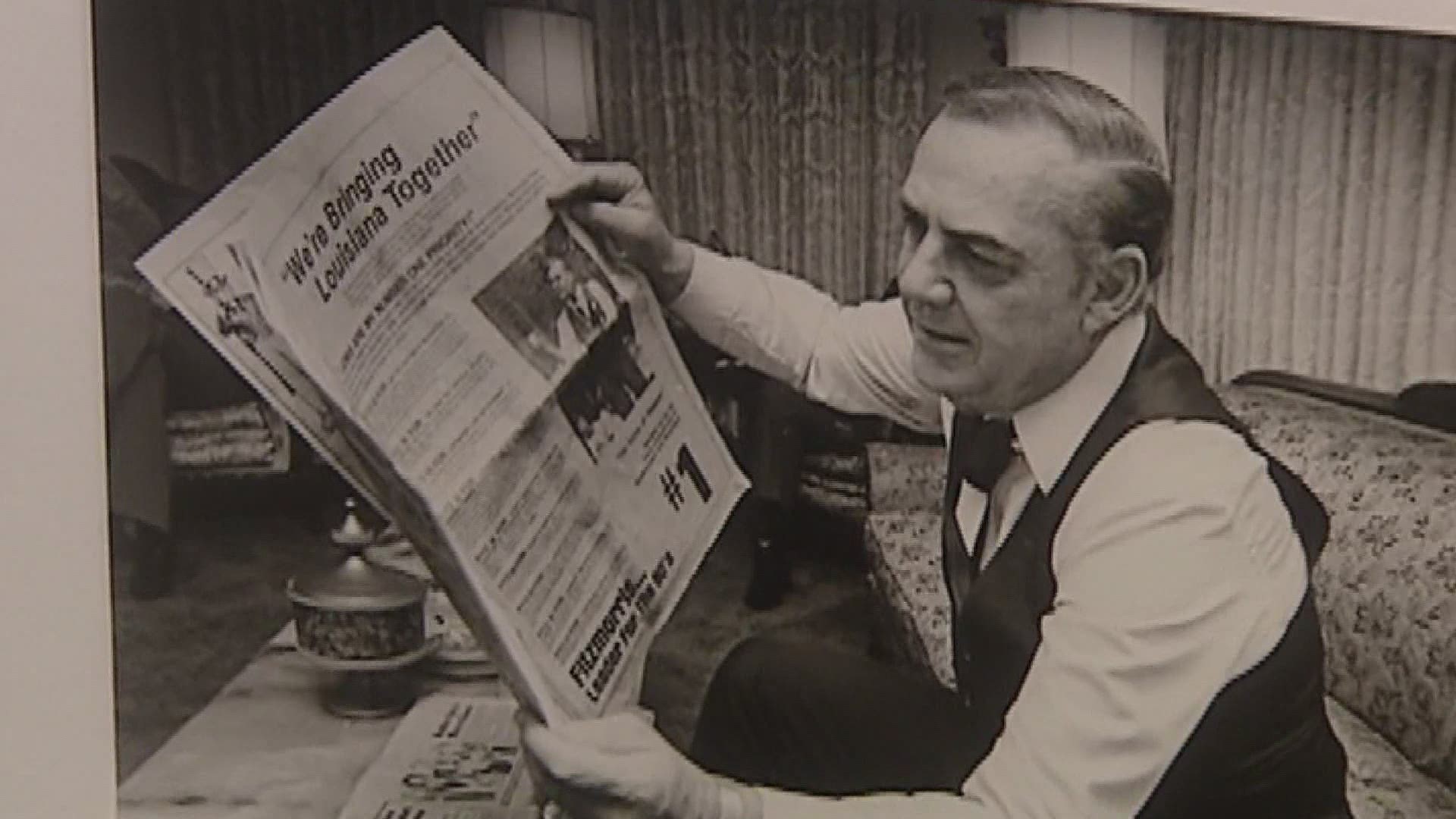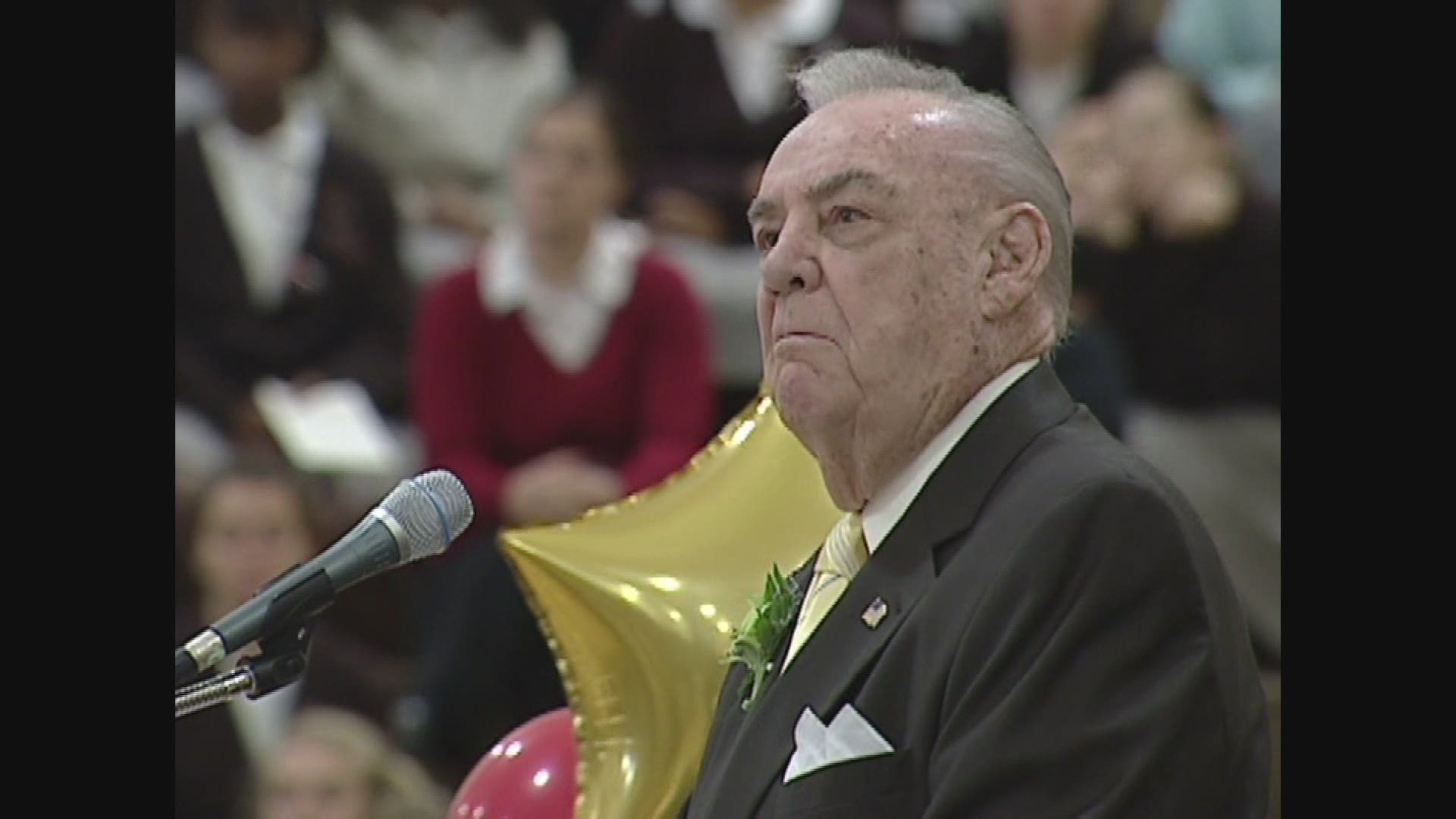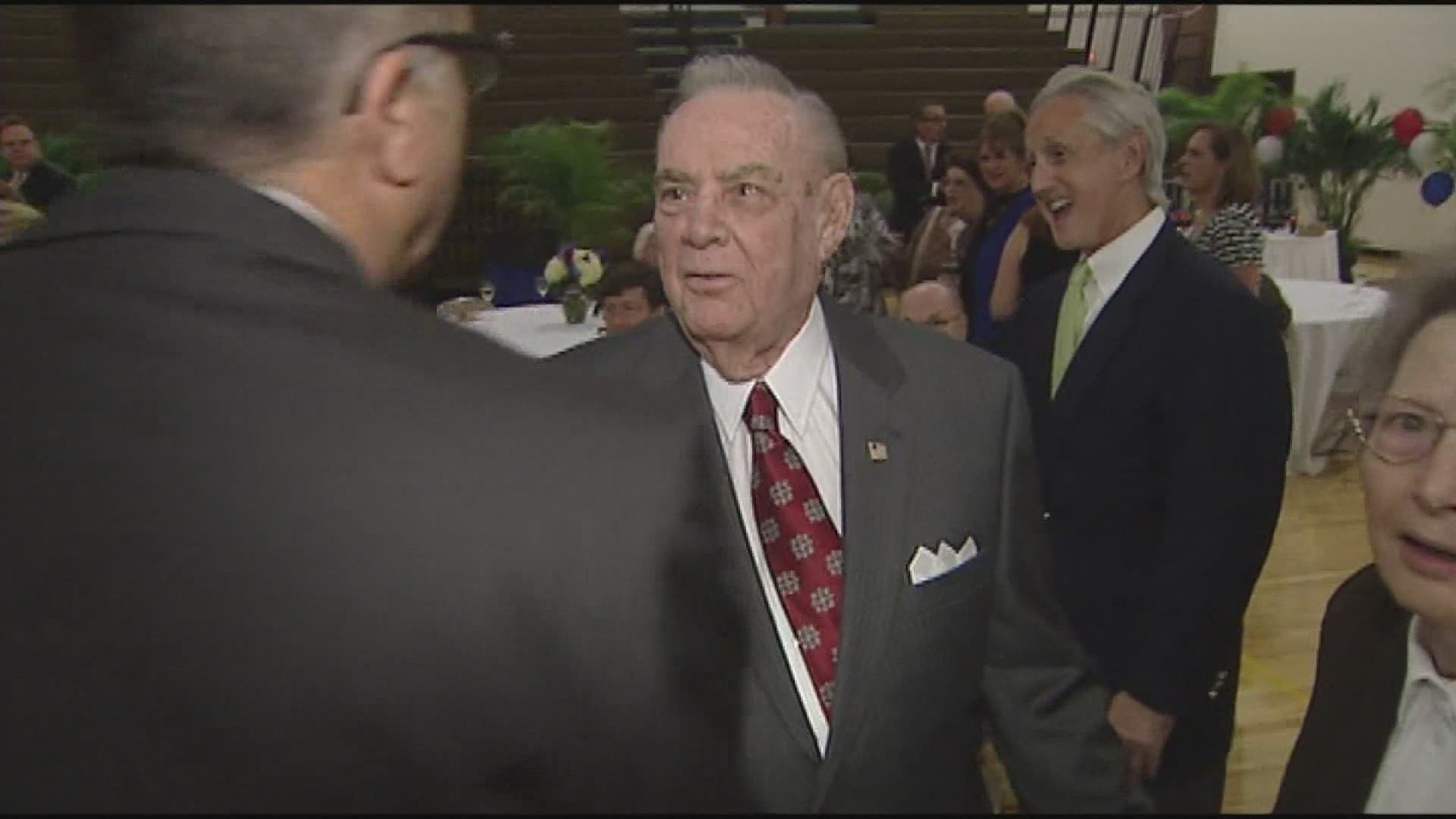NEW ORLEANS — James E. “Jimmy” Fitzmorris Jr., the longtime New Orleans political and civic leader who redefined the office of Louisiana lieutenant governor during his two terms in office in the 1970s but endured political heartbreak in failed bids for governor and mayor, died Wednesday night. He was 99.
Fitzmorris was the first full-time lieutenant governor in state history, overwhelmingly elected to his first term in 1971. “Fitz," as he was affectionately known, helped redefine the duties of the office, in particular as a strong booster and promoter of economic development and the state’s burgeoning tourism industry during the 1970s. Another principal role for the lieutenant governor at that time was presiding over the state senate, which Fitzmorris did during a pivotal time in state history - the drafting of a new state constitution in 1973.
He went on to serve two terms before leaving the lieutenant governor’s office in 1980.
“The contributions made by former Lt. Gov. Jimmy Fitzmorris to Louisiana are too many to be mentioned and too great to be measured,” said Gov. John Bel Edwards in a statement. “Always humble and a true gentleman, he led a life of exemplary and selfless service to country and state.... Among our greatest public servants, Jimmy was well and widely known for his civility, honesty and leadership."
Billy Nungesser, the current lieutenant governor, called Fitzmorris a uniting force who could work with politicians on all sides of an issue, and embodied "everything right about public service."
Clancy DuBos on the Legacy of Jimmy Fitzmorris
“Before supporting my candidacy for Lieutenant Governor, former Lt. Governor Jimmy Fitzmorris asked me to promise to him and the people of Louisiana that regardless who won Governor, I would work with the Governor and never talk badly about our state’s top official," Nungesser said in a statement. "When I asked why, Fitz said, ‘Because the only way you can do the best for Louisiana is if you and the Governor work together.’ His ability to unite differing views for a common good is what made him so effective for our state."
While remembered as a successful lieutenant governor, Fitzmorris is equally as well-known for his political losses, including a loss to Moon Landrieu in the 1969 New Orleans mayor’s race and a loss to Dave Treen (and fellow Democratic challenger Louis Lambert) in the 1979 governor’s race.
“No one in New Orleans or Louisiana politics has known as much electoral heartbreak,” wrote Clancy DuBos, Gambit political columnist and WWL-TV political analyst. “Through it all, he kept his indomitable spirit, clinging to the notion that the measure of the man is not how high he climbs but how many times he can get back up after being knocked down.”

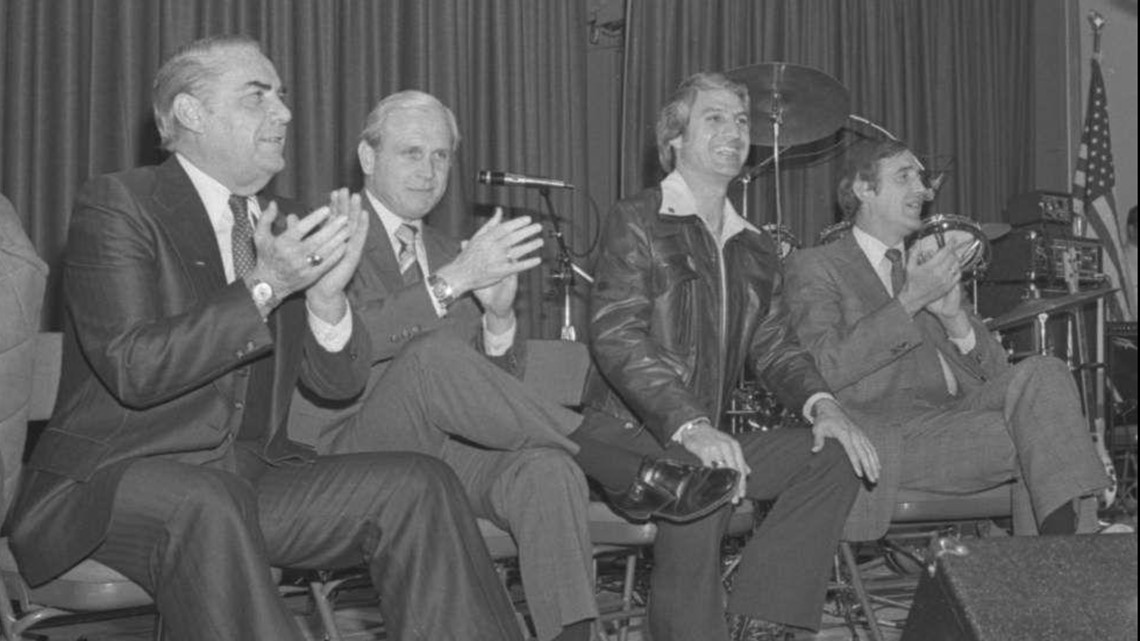
The 1979 governor’s race was the most high-profile loss for Fitzmorris – an election that many still believe was stolen from him by voting irregularities. He ran third in the crowded primary, narrowly edged out of second place in the primary by Public Service Commissioner Louis Lambert. Since unofficial returns had at one time showed him in second place, Fitzmorris tried to challenge the final results. A judge in East Baton Rouge Parish threw out just 300 of the 2,500 or so votes that decided the election. Later, Fitzmorris and the other failed Democratic challengers surprised many by endorsing Treen in the runoff. It was a race that many political observers said Fitzmorris would have been a heavy favorite to win. Fitzmorris tried again in 1983 to regain his lieutenant governor’s post, but lost to Bobby Freeman.
A lifelong Democrat, his political career began on the New Orleans City Council, where he served three terms from 1954 until 1966, a time of great growth and challenges for the city. He was first elected as a district council member during the Chep Morrison era and was later elected to an at-large post, serving from 1962 to 1966. During his council tenure, he was involved in laying the framework for what became the Louisiana Superdome.

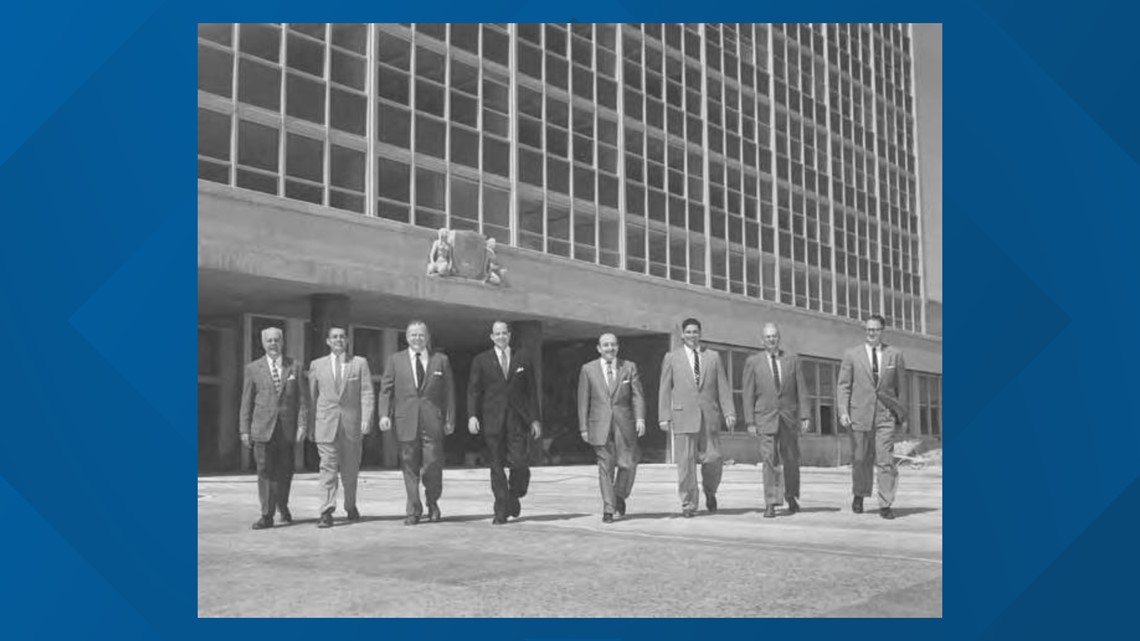
Fitzmorris tried twice to run for mayor of New Orleans, losing in 1965 to incumbent Victor Schiro, whom some analysts believed benefitted from his position as the incumbent during Hurricane Betsy, which struck just months earlier. Fitzmorris lost then in 1969 to Moon Landrieu, despite the fact that Fitzmorris led in the Democratic primary.
“Would I have loved to be mayor? Absolutely,” he told former WWL-TV anchor Angela Hill in a 2004 profile. “Would I have made a commitment? Absolutely. Do I think I’d have done a great job? Absolutely. How about governor? I think I’d have done a great job as governor and I would have enjoyed it.” In the interview, Fitzmorris said the teachings of his parents pulled him through the political losses. “They taught me when you get knocked down, you get up. If you get knocked down 20 times, you get up 20 times.”


Fitzmorris was born in New Orleans on Nov. 15, 1921 and grew up in the city's Broadmoor neighborhood. A 1939 graduate of Jesuit High School, he attended Loyola University before leaving at the age of 18 to work as a messenger boy for the Kansas City Southern Railroad.
After a stint in the U.S. Army during World War II (rising to the rank of Major), Fitzmorris returned to the railroad, ascending to the position of vice president. “There’s a sort of romanticism about the railroads, to be able to look out the window as you go by and see America at its best,” he told Hill in the WWL-TV interview.
Fitzmorris served as an executive with Kansas City Southern for many years and later worked as a consultant to the railroad and lobbyist and consultant for other businesses in real estate, banking and the corporate arena, through his firm Fitzmorris and Associates.
“Your business is built on one thing: your personal character and your personal reputation. People do business with people they’re comfortable dealing with. Even today, I don’t have a single contract written with anybody that I represent. We shake hands,” he said in 2004.

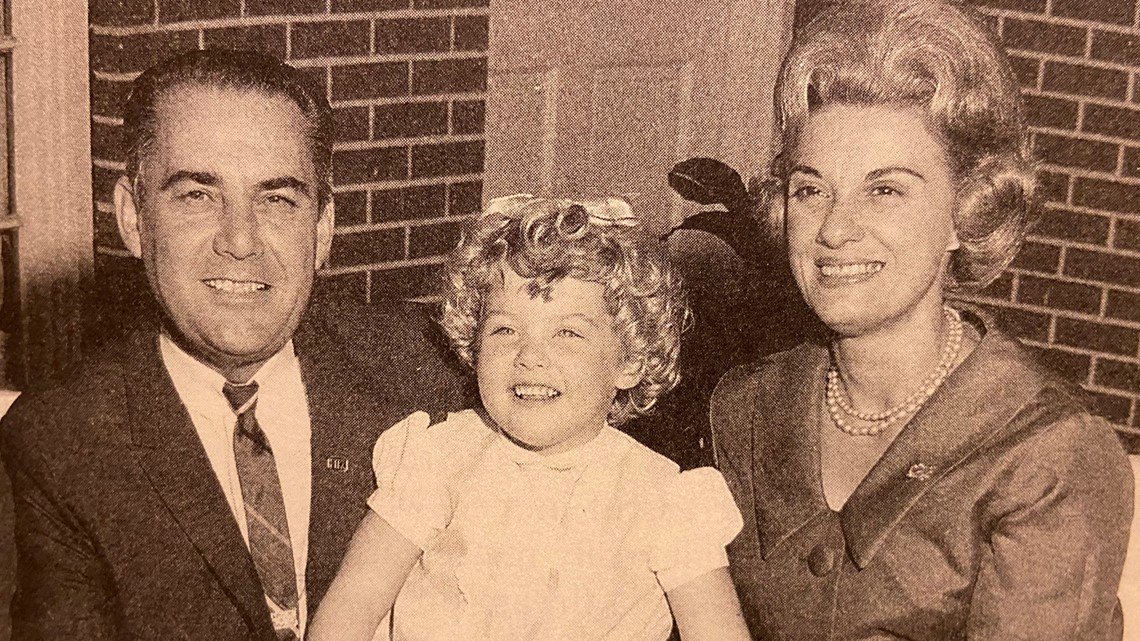
Former New Orleans mayor Marc Morial, now president and CEO of the National Urban League, remembered Fitzmorris as an early supporter of his political career. Fitzmorris co-chaired Morial's 1994 campaign for mayor, which was important to establish Morial, then a young state lawmaker, as a viable force in city politics.
In his book, The Gumbo Coalition: 10 Leadership Lessons That Help You Inspire Unite and Achieve, Morial described Fitzmorris: “I don’t know if I have ever met a soul who new so many people,” Morial wrote. ”Just as impressive, Fitzmorris was never shy about connecting two people in his network. He was a walking encyclopedia and a veritable expert on who’s who in New Orleans.”
Morial is now calling on the city to honor Fitzmorris by renaming the city's Union Passenger Terminal for him, in honor of his service to the city and the railroad business.
“The passing of Jimmy Fitzmorris represents the passing of an entire era of Louisiana politics,” Morial said. “He was an enormously influential force for good and I will forever be grateful for his guidance, his encouragement and his example.”
Once his political career ended, Fitzmorris remained active in New Orleans as a civic booster, serving countless boards and charitable organizations as well serving as a founding board member of First Bank & Trust. He was particularly fond of Mount Carmel Academy, where he served on the board of directors for more than 65 years. His two granddaughters attended the Lakefront school.
“When the Lord looks at you, he doesn’t want to know whether you were governor or lieutenant governor or mayor or city councilman, he wants to know what you did for other people. That’s what life is all about,” he said in 2004.
Among many honors, Fitzmorris was named to the Louisiana Political Museum and Hall of Fame in 1999, honored as Jesuit High School’s Alumnus of the Year and received the Mayor’s Medal of Honor from former Mayor Morial in 2000.
Fitzmorris chronicled his life in politics and public service in a 1992 book, "Frankly Fitz!," copies of which he loved to sign and gift to friends and colleagues. At the same time, he was fondly remembered for maintaining the art of the handwritten note, frequently sending notes of congratulations to people, often accompanied by a newspaper clipping or photograph he and his office staff collected to share with the recipient.
He was also the subject of a 2019 documentary produced and aired by WLAE-TV, titled "Fitz! The Life and Political Legacy of Jimmy Fitzmorris." Fitzmorris attended the premiere at the New Orleans Museum of Art.
Fitzmorris’ wife Gloria died in 1995. Survivors include their daughter, Lisa Clement, two granddaughters and two great-grandchildren, as well as several nieces, nephews and cousins.
Funeral arrangements are pending.

